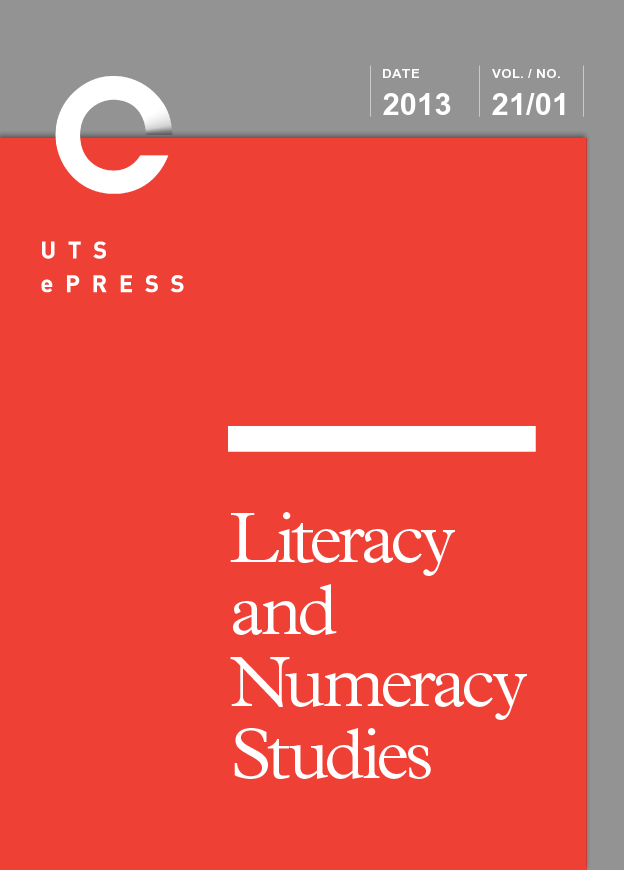Principles and Practices in Four New Zealand Family Focused Adult Literacy Programs: Towards wellbeing in diverse communities
Main Article Content
Abstract
The field of family literacy, both theory and practice, has much to offer adult literacy education. However, family approaches in adult literacy are under-theorised and underdeveloped if the holistic wellbeing of the intended participants in programs based on these approaches is the primary concern. This article discusses one dimension of a larger study which explored the wellbeing-related effects of participation in four family focused adult literacy programs in New Zealand. This article discusses the principles and practices that were common across the programs. The study found that, despite differences in program content, foci and approaches, common principles and practices reflected shared values and beliefs about literacy and about people which shaped the program design and participants’ experiences of the program. I reaffirm the ideological nature of literacy, highlighting the necessity of paying attention to values and beliefs in literacy programs in order that the effects of involvement in them are in the best interests of individual participants, their families and their communities.
Article Details
Issue
Section
Authors who publish with this journal agree to the following terms:
a) Authors retain copyright and grant the journal right of first publication with the work simultaneously licensed under a Creative Commons Attribution License that allows others to share and adapt the work with an acknowledgement of the work's authorship and initial publication in this journal.
b) Authors are able to enter into separate, additional contractual arrangements for the non-exclusive distribution of the journal's published version of the work (e.g., post it to an institutional repository or publish it in a book), with an acknowledgement of its initial publication in this journal.
c) Authors are permitted and encouraged to post their work online (e.g., in institutional repositories or on their website) prior to and during the submission process, as it can lead to productive exchanges, as well as earlier and greater citation of published work (See The Open Access Citation Advantage Service). Where authors include such a work in an institutional repository or on their website (ie. a copy of a work which has been published in a UTS ePRESS journal, or a pre-print or post-print version of that work), we request that they include a statement that acknowledges the UTS ePRESS publication including the name of the journal, the volume number and a web-link to the journal item.
d) Authors should be aware that the Creative Commons Attribution (CC-BY) License permits readers to share (copy and redistribute the work in any medium or format) and adapt (remix, transform, and build upon the work) for any purpose, even commercially, provided they also give appropriate credit to the work, provide a link to the license, and indicate if changes were made. They may do these things in any reasonable manner, but not in any way that suggests you or your publisher endorses their use.
